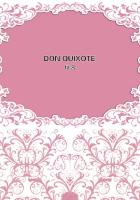There was certainly nothing in his face or manner to indicate the least evasion or deceit, or indeed anything but his usual *****te, perhaps a little perturbed and preoccupied by what he was going to say. "I had an idea of writin' you a letter," he continued, "kinder combinin' practice and confidential information, you know.
To be square with you, Mr. Ford, in pint o' fact, I've got it HERE.
But ez it don't seem to entirely gibe with the facts, and leaves a heap o' things onsaid and onseen, perhaps it's jest ez wall ez I read it to you myself--putten' in a word here and there, and explainin' it gin'rally. Do you sabe?"
The master nodded, and Uncle Ben drew from his desk a rude portfolio made from the two covers of a dilapidated atlas, and took from between them a piece of blotting-paper, which through inordinate application had acquired the color and consistency of a slate, and a few pages of copy-book paper, that to the casual glance looked like sheets of exceedingly difficult music.
Surveying them with a blending of chirographic pride, orthographic doubt, and the bashful consciousness of a literary *******, he traced each line with a forefinger inked to the second joint, and slowly read aloud as follows:--"'Mr. Ford, Teacher.
"'DEAR SIR,--Yours of the 12th rec'd and contents noted.'" ("I did'nt," explained Uncle Ben parenthetically, "receive any letter of yours, but I thought I might heave in that beginning from copy for practice. The rest is ME.") "'In refference to my having munney,"' continued Uncle Ben reading and pointing each word as he read, "'and being able to buy Ditch Stocks an' Land'"--"One moment," said Mr. Ford interrupting, "I thought you were going to leave out copy. Come to what you have to say."
"But I HEV--this is all real now. Hold on and you'll see," said Uncle Ben. He resumed with triumphant emphasis:--"'When it were gin'rally allowed that I haddent a red cent, I want to explain to you Mister Ford for the first time a secret. This here is how it was done. When I first came to Injian Spring, I settled down into the old Palmetto claim, near a heap of old taillings. Knowin' it were against rools, and reg'lar Chinyman's bizness to work them I diddn't let on to enyboddy what I did--witch wos to turn over some of the quarts what I thought was likely and Orrifferus. Doing this I kem uppon some pay ore which them Palmetto fellers had overlookt, or more likely had kaved in uppon them from the bank onknown. Workin' at it in od times by and large, sometimes afore sun up and sometimes after sundown, and all the time keeping up a day's work on the clame for a show to the boys, I emassed a honist fortun in 2 years of 50,000 dolers and still am. But it will be askd by the incredjulos Reeder How did you never let out anything to Injian Spring, and How did you get rid of your yeald? Mister Ford, the Anser is I took it twist a month on hoss back over to La Port and sent it by express to a bank in Sacramento, givin' the name of Daubigny, witch no one in La Port took for me. The Ditch Stok and the Land was all took in the same name, hens the secret was onreviled to the General Eye--stop a minit,'" he interrupted himself quickly as the master in an accession of impatient scepticism was about to break in upon him, "it ain't all." Then dropping his voice to a tremulous and almost funereal climax, he went on:--"'Thus we see that pashent indurstry is Rewarded in Spite of Mining Rools and Reggylashuns, and Predgudisses agin Furrin Labor is played out and fleeth like a shad-or contenueyeth not long in One Spot, and that a Man may apear to be off no Account and yet Emass that witch is far abov rubles and Fadith not Away.
"'Hoppin' for a continneyance "'of your fevors I remain, "'Yours to command, "'BENJ D'AUBIGNY."'
The gloomy satisfaction with which Uncle Ben regarded this peroration--a satisfaction that actually appeared to be equal to the revelation itself--only corroborated the master's indignant doubts.
"Come," he said, impulsively taking the paper from Uncle Ben's reluctant hand, "how much of this is a concoction of yours and Rupe's--and how much is a true story? Do you really mean?"--"Hold on, Mr. Ford!" interrupted Uncle Ben, suddenly fumbling in the breast-pocket of his red shirt, "I reckoned on your being a little hard with me, remembering our first talk 'bout these things--so I allowed I'd bring you some proof." Slowly extracting a long legal envelope from his pocket, he opened it, and drew out two or three crisp certificates of stock, and handed them to the master.
"Ther's one hundred shares made out to Benj Daubigny. I'd hev brought you over the deed of the land too, but ez it's rather hard to read off-hand, on account of the law palaver, I've left it up at the shanty to tackle at odd times by way of practising. But ef you like we'll go up thar, and I'll show it to you."
Still haunted by his belief in Uncle Ben's small duplicities, Mr. Ford hesitated. These were certainly bona fide certificates of stock made out to "Daubigny." But he had never actually accepted Uncle Ben's statement of his identity with that person, and now it was offered as a corroboration of a still more improbable story.
He looked at Uncle Ben's ****** face slightly deepening in color under his scrutiny--perhaps with conscious guilt.
"Have you made anybody your confidant? Rupe, for instance?" he asked significantly.
"In course not," replied Uncle Ben with a slight stiffening of wounded pride. "On'y yourself, Mr. Ford, and the young feller Stacey from the bank--ez was obligated to know it. In fact, I wos kalkilatin' to ask you to help me talk to him about that yer boundary land."
Mr. Ford's scepticism was at last staggered. Any practical joke or foolish complicity between the agent of the bank and a man like Uncle Ben was out of the question, and if the story were his own sole invention, he would have scarcely dared to risk so accessible and uncompromising a denial as the agent had it in his power to give.














